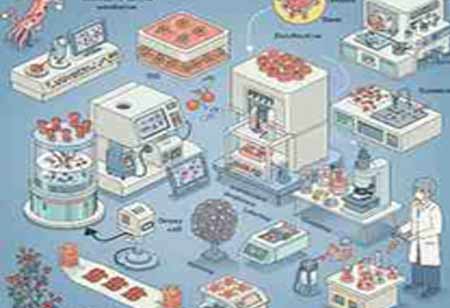Trends to Watch in the Future of Mental Health
Increasing awareness about mental health is transforming the future of mental health care through technological advancement, a focus on prevention, and social support that increases accessibility and understanding.

By
Medical Care Review | Wednesday, January 29, 2025
Stay on top of your health and well-being with exclusive feature stories on the top medical clinics and treatment centers, expert insights and the latest news delivered straight to your inbox. Subscribe today.
Fremont CA: Mental health has emerged as one of the significant issues of recent years, with more and more people becoming aware of the importance of well-being and finding solutions for bettering mental health. With an increased awareness about mental health by society, it means that an increasing understanding of the complexities around mental health care also arises. Shaping up the future of mental health care is a diversity of trends traced to technological changes, society's attitudes toward the issue, and healthcare practice. These trends may transform services for people to gain support.
Telehealth services, including virtual therapy and online counseling, have gained popularity during the COVID-19 pandemic due to their flexibility and accessibility. These remote services are particularly beneficial in areas with limited mental health resources. As more people become comfortable with online platforms, telehealth is expected to expand, providing convenient and cost-effective ways to connect with mental health professionals.
Technology integration into mental health care is rapidly increasing, with digital tools critical in treatment and prevention. Self-managed apps monitor mental health, guide meditation, and perform CBT exercises. AI-developed real-time chatbots are also under development to offer one-on-one support for mental health.
The focus on mental health in the workplace is picking up steam as employers realize that the well-being of employees matters and are initiating programs such as EAPs, mental health days, and counseling services. The stigma attached to mental health is diminishing as companies understand that supporting mental health can improve productivity, job satisfaction, and employee engagement.
Preventive mental health care is also on the rise. Traditionally, mental health care has focused on treatment once people are experiencing quite significant distress or symptoms. Yet, as a trend and movement, this is becoming ever more holistic - that is to say, before problems occur - focusing on developing resilience, improving self-care practices, and teaching individuals coping skills beforehand. More and more schools, workplaces, and healthcare providers offer mental health education to equip individuals with the tools to maintain good mental health.
Continued research emphasizes that mental health is related to diseases like heart disease, diabetes, and chronic pain. Health providers have begun to care for patients holistically, integrating mental health screening during regular physical check-ups and offering overall care that addresses patients' psychological and physical needs.
Other trends to monitor in social media include its rising role and implications on mental health. While platforms create channels for connectivity, they have been associated with anxiety, depression, and other challenges related to mental health among many young users. As a response, there has been an increase in pressure from these companies to hold them responsible for encouraging positive mental health online, handling issues of cyberbullying, social comparison, and screen addiction.







